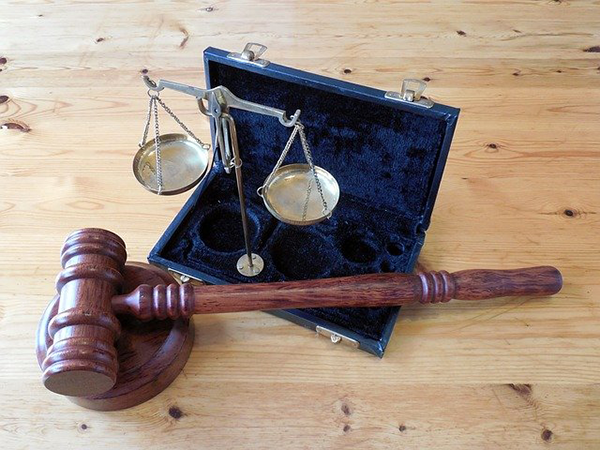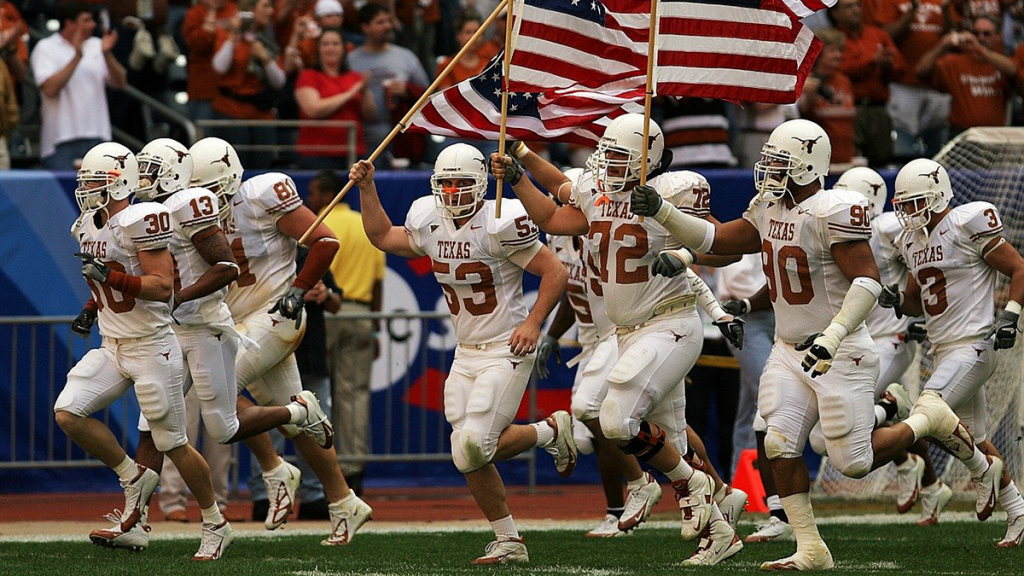On June 21, the U.S. Supreme Court unanimously ruled in favor of college athletes in a compensation dispute. On July 1, college athletes could legally control their own name, image, and likeness (NIL) and began signing marketing deals. These developments sent ripples across the college sports landscape.
What Did the Court – and NCAA – Say?
Per ESPN’s Dan Murphy, “The decision allows schools to provide their athletes with unlimited compensation as long as it is [in] some way connected to their education.”
Murphy adds that the ruling “opens the door for future legal challenges that could deal a much more significant blow to the NCAA’s current business model.”
The National Collegiate Athletic Association (NCAA), college sports’ governing body, has long employed the amateurism model. This model gave players full or partial scholarships, but as members of a team, they had no personal NIL rights.
Many states have passed NIL laws allowing athletes to engage in marketing activities. Opendorse, a firm that partners with schools and players for such marketing efforts, says that 24 states have enacted NIL laws and that 94% of NCAA schools are in states that have at least proposed such laws.
Just days before some of those laws came into effect, the NCAA reformed its bylaws so that athlete compensation under NIL rules is not a violation. The NCAA also allowed room for schools in states without NIL policies to adopt their own interim rules.
These state rules, plus associate justice Brett Kavanaugh’s biting concurrence showed the proverbial writing on the wall for the NCAA.
Kavanaugh said, “The NCAA’s business model would be flatly illegal in almost any other industry in America.”
He added, “Price-fixing labor is price-fixing labor. […] Businesses like the NCAA cannot avoid the consequences of price-fixing labor by incorporating price-fixed labor into the definition of the product.”

What Do NIL Laws Look Like?
The state of Alabama is extremely passionate about college sports, and it enacted an NIL law on July 1. Sports Illustrated site Bama Central highlights the Alabama law and the University of Alabama’s rules:
- University employees may not endorse athletes, and athletes may not wear university marks in endorsement appearances.
- Compensation must be in money, goods, or services; at fair market value; not extending beyond one’s time as a university athlete; and not in exchange for performance.
- I.e. Compensation must be at a flat fee, not at, say, a set amount per touchdown or tackle.
- Athletes may retain professional representation and must disclose contracts with a university-hired firm.
How Did Athletes – and Businesses – Respond?
As soon as the laws went into effect, they unveiled their endorsement deals.
Just after midnight Central Time on July 1 in Alabama, Auburn quarterback Bo Nix posted an ad for Milo’s sweet tea, a very popular drink in Alabama.
Almost immediately, a fan of Alabama, Auburn’s bitter in-state rival, went viral for dumping out his Milo’s tea.
Then, almost immediately after that, Milo’s unveiled a partnership with Alabama defensive back Malachi Moore.
This rivalry sparring shows the delicate line companies must walk when directly sponsoring college athletes, particularly in areas where college sports reign king.
Some group licensing deals have helped companies support athletes in a state, on a team, or from a certain position group.
Per the Lincoln Journal Star, Nebraska fast food chain Runza will offer a flat fee to the first 100 athletes at any university in Nebraska who endorse its products on social media. ESPN says a gym owner will pay every scholarship football player at Miami to endorse his gym. Finally, in a perfectly branded deal, northwest Arkansas restaurant Wright’s Barbecue partnered with Arkansas’ entire offensive line.
What are the Biggest NIL Deals?
Most of these endorsements take place on social media, so follower count usually indicates value.
Per Glenn Gilbeau of the Lafayette Daily Advertiser, LSU gymnast Olivia Dunne boasts over five million total followers on TikTok and Instagram, making her the nation’s most-followed – and likely soon highest-paid – college athlete. Gilbeau quotes multiple sources who say Dunne could pull in endorsement deals in the millions.
Hannah and Haley Cavinder, twins on Fresno State’s basketball team, have four million combined followers and inked “what is believed to be the most significant Day 1 contract,” per Sports Illustrated’s Ross Dellenger.
Thus, some of the biggest NIL deals will come from athletes with already-significant social media followings.
However, even smaller deals can carry great personal significance. For instance, Marshall football player and country music singer Will Ulmer, who previously performed under a stage name and could not accept payment, can now perform for hire under his real name, per the Charleston Gazette-Mail. Ulmer may not get rich off this deal, but he will finally be able to pursue a meaningful passion the same way any other student would.
How are Schools Responding?
Forbes senior contributor Marc Edelman advises administrators to educate athletes, build trust with them, and embrace them as partners and embrace that this era of NIL deals is here to stay.
Schools are sponsoring with third-party organizations to help educate teams and organize and vet deals. For example, Opendorse offers education programs to help athletes assess their NIL value, build brands, and ensure compliance with NCAA and university rules. INFLCR also offers educational, brand-building, and compliance resources.
Schools are also using potential for NIL deals as a recruiting pitch.
For instance, Ole Miss highlighted its social media presence, nationally televised docuseries following its teams, and endorsement deals signed by its pro athletes.
Meanwhile, LSU went for the bright lights of New York City with a Times Square billboard ad.
Schools that embrace and maximize these NIL deals have a chance to be winners. Now every player can be a winner on the open market, too.
Starting in August, some of our content will become subscriber-exclusive. This move will help us continue to grow and give our subscribers more insider advice, insights, and networking opportunities. Our newsletter, the IIFXtra, will send you a mix of free and exclusive content as soon as we publish it. Sign up for the IIFXtra below and learn more about subscribing here.
[mailmunch-form id=”1036259″]

